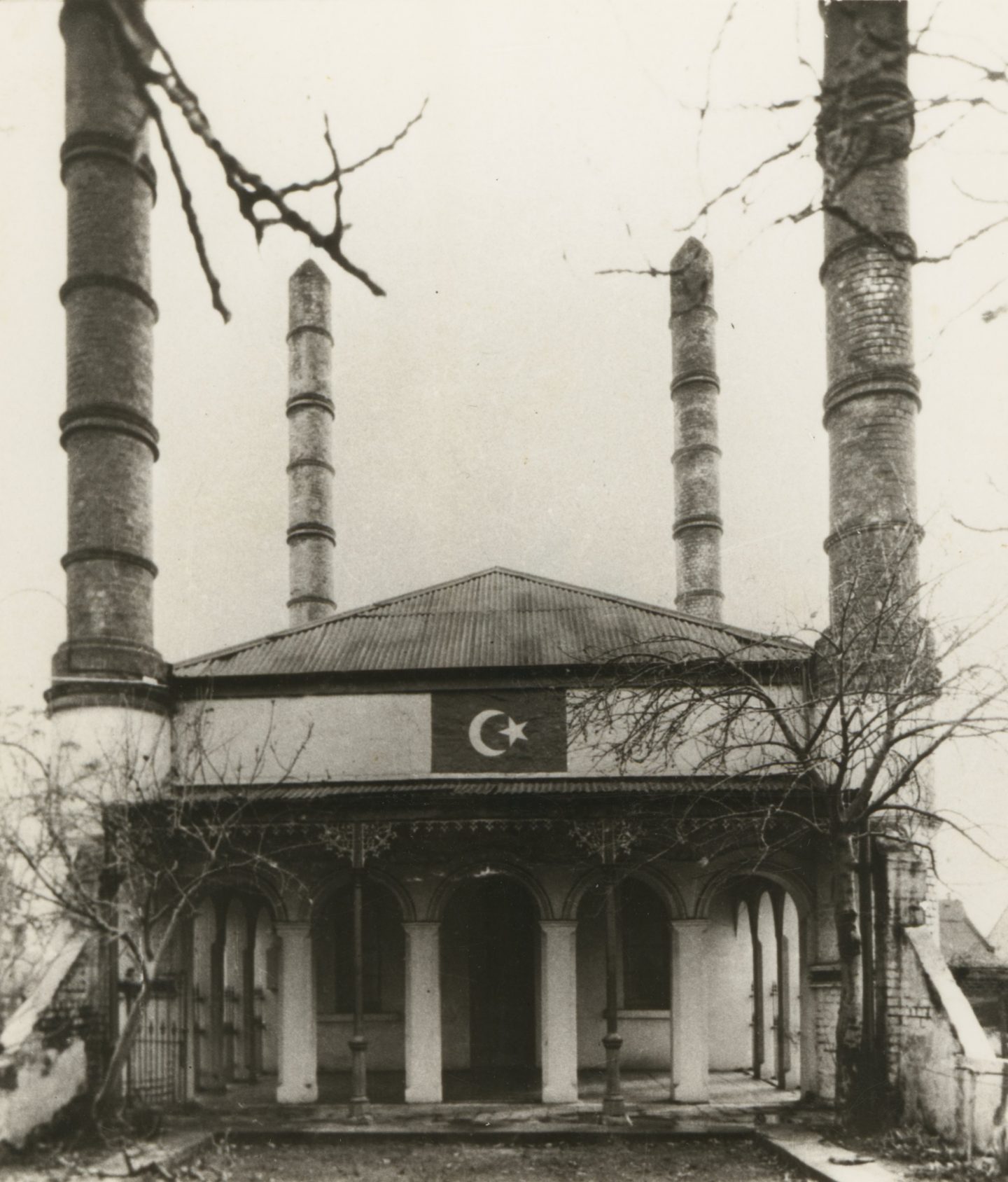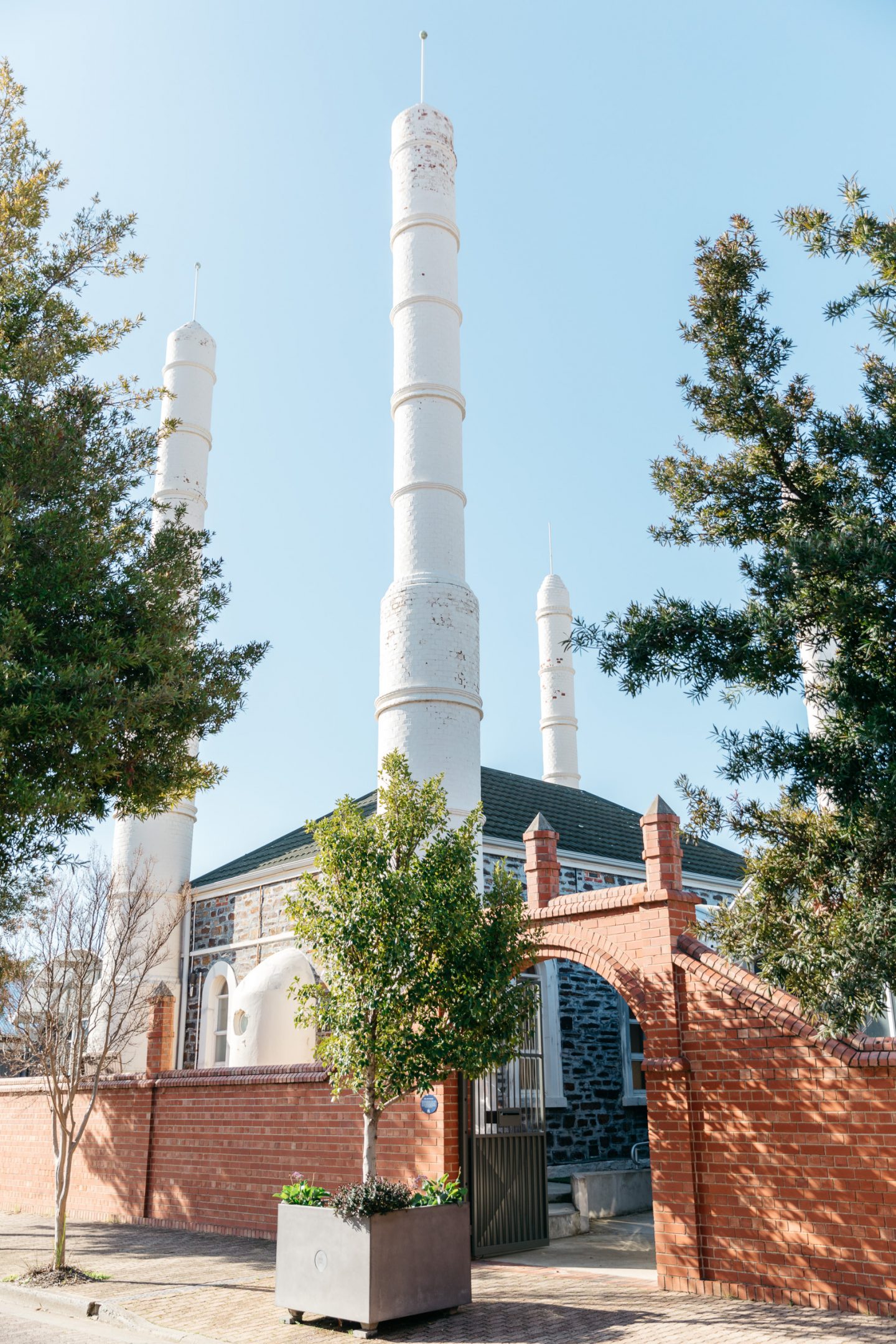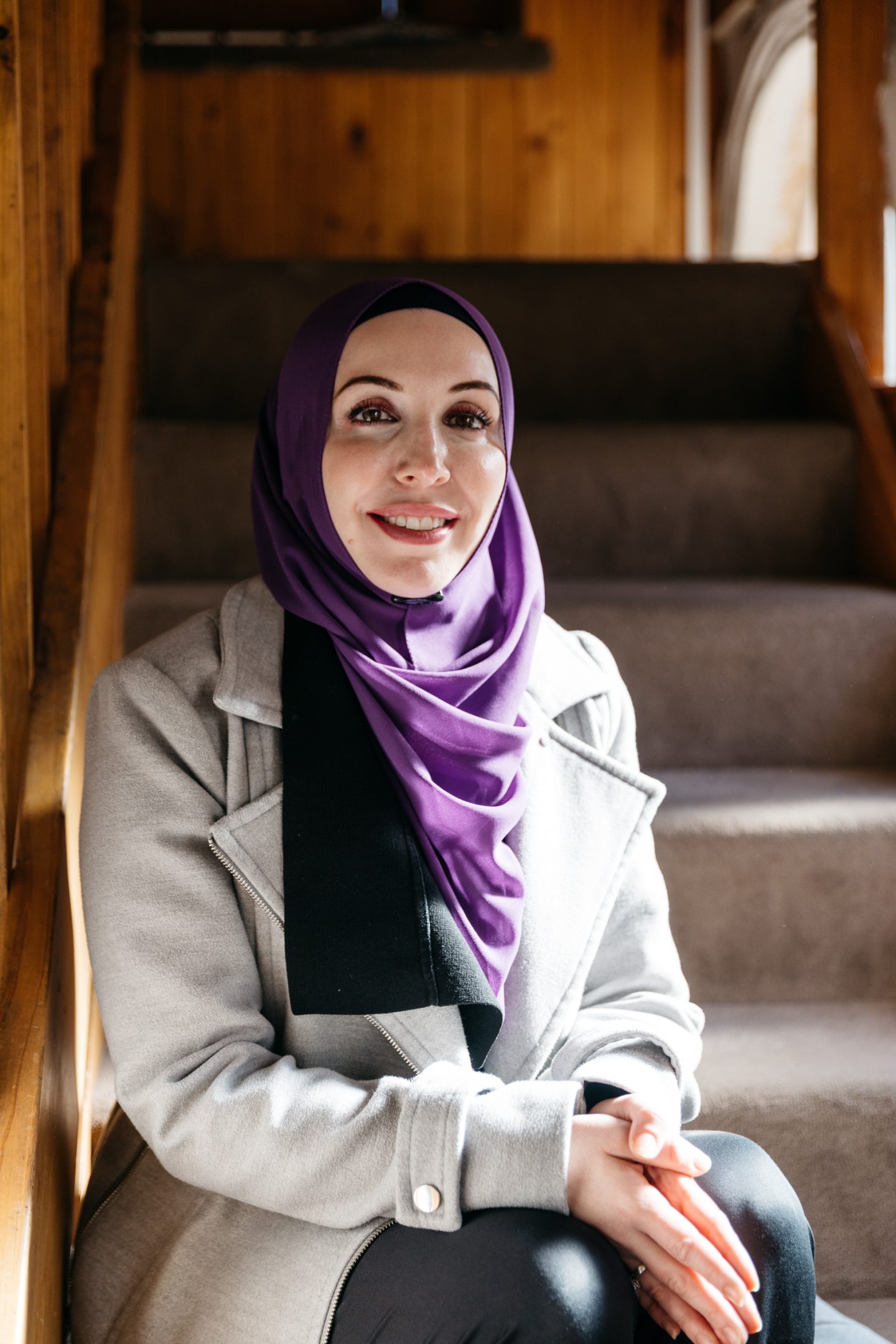There are still lines of masking tape dotting the carpeted floor of the Adelaide City Mosque. But, like the community that gathers here, these days they’re a little closer together.
“During COVID-19, it was very hard on us,” Imam Sheikh Helmi Bakhour tells The Adelaide Review. “It came a few weeks before the month of Ramadan, and that is once a year – as Muslims we wait for it every, single, year, to spend these 30 days the best we can.”
Just as theatres, sports venues and restaurants faced historic upheaval in March, restrictions on ‘mass’ gatherings had a quite literal impact on churches, temples and mosques who found themselves taking the rare step of advising their congregations not to come to prayer.
“What we did was spread the word through the community, and said whoever wants to come register and we’ll make a roster,” he says. “Every day, every prayer we’ll put different 10 people; 10 in the morning, 10 in the afternoon, 10 at sunset. We were able to help as many in the community as we could come to pray in the Mosque in the month of Ramadan.”
For Bakhour, who moved over from Melbourne 18 months ago to take up the post, Adelaide’s comparatively small size made coordinating their COVID-19 response, and retaining a sense of community, a little easier.
“Part of the Islamic teaching is to protect yourself, protect your family, your beloved ones and the community you live in.”
“To be honest the first two, three weeks were a bit hard for me to come from a busy city,” he says of his arrival in South Australia. “Then you get used to it, and I like it. It’s like a small town, there’s no secrets. As soon as you say hello, everyone says ‘the Imam said hello!’ So it’s easier to communicate and to reach out to people than Victoria. Here, a bit of social media, and everyone’s received the word.
“It was hard but thanks God we emphasised for people to follow the guidelines of the government,” he says. “Because if I’m gonna be selfish and just say, ‘ah, there’s no Corona, this is nothing’, then I’m risking myself, my family, my kids, my beloved ones, and my wider community.
“Part of the Islamic teaching is to protect yourself, protect your family, your beloved ones and the community you live in. Your neighbours. If you’ve got a neighbour next door check up on them, make sure they’re alright.”
 Adelaide City Mosque, 1950
Adelaide City Mosque, 1950
 Adelaide City Mosque, 2020
Adelaide City Mosque, 2020
Tucked away on a quiet side street in Adelaide’s south-west corner, to the city’s non-Muslim population the Mosque is perhaps best known for the four white minarets that reach up from the old workers cottages that surround it. First erected between 1888 and 1889 to cater to the city’s ‘Afghan’ cameleers, the Mosque stands as a tangible reminder of the Muslim community’s long and continuing role in South Australia since the beginning of colonisation.
In recent decades, the oldest still-standing mosque in the southern hemisphere has been gradually upgraded to include new air-conditioning, modern AV systems and improved security systems – sadly an important consideration following the Christchurch massacre. But the onset of COVID-19 also saw Bakhour join communities around the world in embracing new technologies to bridge the effects of social distancing.
“I moved all my lectures and lessons online – we got introduced to the ‘Zoom’ program,” he explains. “It was very complicated to use, but we got there. I wasn’t a fan of Facebook or social media, but someone kept convincing, and convincing, and convincing,” he says, gesturing wryly to assistant Imam, Samir Nooristani. “So now we are on Facebook on a weekly basis – we were daily.
“The reason we did online prayers, we just wanted to tell them that we are here, we’re still running the Mosque for you, keeping it alive. They can’t really pray behind the laptop screen, but we kept the lessons,” he says, explaining how many Islamic supplications (‘dua’) offer particular guidance in times of stress. “When you are lonely, when you are depressed, when you are sick, when you have anxiety.”
All around Australia the economic and social stressors of the pandemic have brought greater pressure to people’s home lives – particularly when leaving the house is discouraged. Bakhour and his team, which includes his wife Renee Taylor as community development officer, have also been conscious of the domestic impacts of the crisis, providing counselling, workshops and a bit of respite and light escapism for families.
“We [said] ‘we are here for you, you are not alone’,” he says. “If you’re stressed do this, if you’re feeling alone, do this. We even did a Zoom kids activity, not an Islamic program but a game by me. Normally, myself, I don’t do games with the kids – my role is to teach them Islamic stuff. But to do riddles from the Imam of the Mosque, and then if you answer, your name goes into a raffle for Rebel Sport vouchers? They loved it.
“And yes, some of them cheated, looked up the answers online,” he chuckles. “But it was a support for the parents as well.”
 Community development officer Renee Taylor
Community development officer Renee Taylor
Being unable to gather at a local level is one thing, but with the Mosque’s community encompassing a broad range of cultural backgrounds and migrant stories (“Every continent on the planet, you’ll find somebody here,” Taylor says), the sudden freeze on international travel, once taken for granted, has had a profound effect.
In March, Nooristani was one of millions worldwide who were planning to make a pilgrimage (‘umrah’) to Mecca. It was not to be. “He was longing to go,” Bakhour says, giving Nooristani a consolatory pat on the shoulder. “Then the company he paid went into liquidation – with his visa. It was a stressful two weeks for him, then a week before the trip, [international travel restrictions] came in.”
“Every continent on the planet, you’ll find somebody here.”
But for Samir, who moved from Afghanistan to Christchurch at the age of seven before eventually making his way to Adelaide via Melbourne, perhaps the worst was to come. “He was planning to be in London now – he’s got family there – so it was very hard on him.”
You’d be hard-pressed to glean such upheaval from Samir’s quiet, cheerful manner. “There are a lot of people in that situation, but because in religion we learn how to be patient, just have faith and believe in god, whatever god willed to happen shall happen. So they take it easy; this is not in my control. What god wills for me, I will have, and that brings great comfort. We know that we can only try our best, but if god willed for it to happen it will, if he didn’t, it won’t.
“It’s not obvious because they are patient, and they will wait. Then, as soon as this all passes, Adelaide will be empty,” he jokes.
Adelaide City Mosque
Little Gilbert Street, Adelaide
Walter is a writer and editor living on Kaurna Country.
Get the latest from The Adelaide Review in your inbox
Get the latest from The Adelaide Review in your inbox